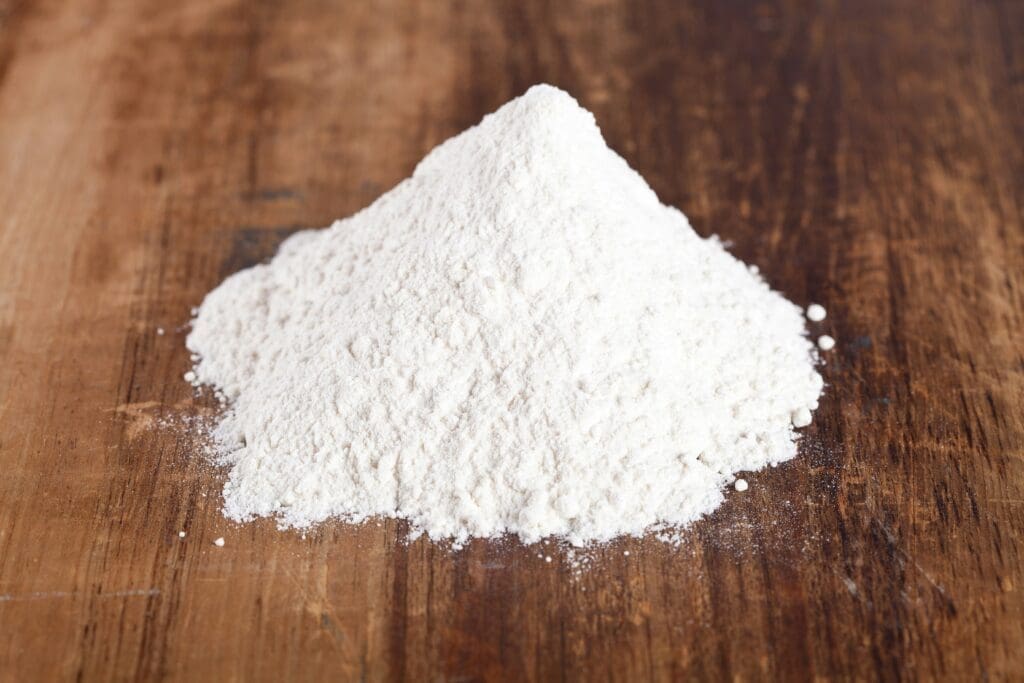
Antimonium tartaricum
Latin name: Antimonium tartaricum
Short name: Ant-t
Common name: Tartar Emetic | Potassium Antimony Tartrate
Primary miasm: Sycotic Secondary miasm(s): Syphilitic
Kingdom: Minerals
Family: Inorganic Salt of Antimony
- Symptomatology
- Remedy Information
- Differentiation & Application
A double salt of antimony and potassium tartrate (chemical formula: K(SbO)C₄H₄O₆·½H₂O), Antimonium tartaricum was once widely used in conventional medicine as an emetic and expectorant, but is highly toxic in crude doses. In homeopathy, the substance is triturated and potentised to render it safe and curative.
Formerly used as a powerful emetic and anti-parasitic agent in 18th–19th century medicine, especially in lung and gastrointestinal conditions; now obsolete due to toxicity.
Originally proved by Hahnemann, with key contributions from Hering, Allen, and Boenninghausen. Most known for its strong action on the respiratory system and its keynote of overwhelming weakness with rattling chest.
- Respiratory system – bronchi, lungs, trachea
- Mucous membranes – especially of the chest and stomach
- Gastrointestinal system – nausea, vomiting, weakness
- Circulation and skin – cyanosis, coldness, eruptions
- Elderly and infants – especially in low vitality states
- Right side – symptoms more prominent on the right
- Sitting upright
- Burping or expectorating mucus (though often difficult)
- Cold open air (for some symptoms)
- Sleep (though sleep may be restless)
- Sweating (relieves feverish symptoms)
- Lying down, especially flat on the back
- Warmth, warm rooms or heat of bed
- Eating or drinking
- Motion
- Touch (oversensitivity of body)
- Suppression of eruptions or secretions
- Cold damp weather
- Ipecacuanha – Also has rattling cough, but with incessant nausea and no expectoration at all
- Carbo vegetabilis – Collapse states, but more air hunger and craving for fanning
- Lycopodium – Right-sided chest symptoms, but more flatulence and fear of failure
- Tartar emetic (crude) – Used historically, but dangerous in raw form
- Hepar sulphuris – Suppurative stages with more irritability and warmth craving
- Complementary: Ipecac., Bryonia
- Antidotes: Pulsatilla, Nux vomica
- Follows well: Aconitum in early stages of respiratory infection
- Inimical: Ant-c. (similar, but not to be alternated routinely)
- Complementary: Ipecac., Bryonia
- Antidotes: Pulsatilla, Nux vomica
- Follows well: Aconitum in early stages of respiratory infection
- Inimical: Ant-c. (similar, but not to be alternated routinely)
- Key remedy in bronchitis and bronchiolitis in infants
- Consider in pneumonia with cyanosis and difficult expectoration
- Effective in asthma with mucous congestion
- Use in collapsed states after vomiting or diarrhoea
- Helpful in suppressed eruptions leading to chest complaints
- Cold sweat on forehead with rattling chest is pathognomonic
Mind
- Irritability with aversion to touch
- Dullness, moaning
- Fear of suffocation
- Weeping without reason
Chest / Respiration
- Rattling, loose cough, no expectoration
- Suffocative spells, cyanosis
- Worse lying down
- Better sitting up
Stomach
- Nausea, vomiting of mucus or bile
- Vomiting with exhaustion
- Tongue coated white/yellow
- Aversion to food
Skin
- Pustular eruptions
- Suppressed eruptions before pneumonia
- Cold, mottled skin
- Cold sweat
Generalities
- Prostration with rattling cough
- Cyanosis
- Collapsing states in children and elderly
- Better sitting up, worse lying down
- Samuel Hahnemann – Materia Medica Pura: Original proving, emphasis on nausea, cough, and collapse
- C. Hering – Guiding Symptoms: Developed chest and mind symptoms; respiratory collapse picture
- James Kent – Lectures on Homoeopathic Materia Medica: Commentary on inability to expectorate and cyanosis
- William Boericke – Pocket Manual: Clinical guidance on pulmonary and gastric crises
- John Henry Clarke – Dictionary of Practical Materia Medica: Expanded repertorial and skin details
